Prime Minister Sir Keir Starmer met with European Commission President Ursula von der Leyen at Downing Street on 24 April for what the Prime Minister’s Office described as a “long and productive discussion” covering a range of pressing international issues.
According to officials, topics included Ukraine, energy security, the global economy, and defence cooperation.
The two leaders “condemned the deadly Russian strike on Kyiv overnight” and reaffirmed their shared commitment to support Ukraine “for as long as it takes.” Both Starmer and von der Leyen agreed that standing firmly with Ukraine remains a fundamental priority amid ongoing instability in Europe, according to the official readout.
Discussions also centred on the ongoing negotiations to deepen the UK-EU relationship. The Prime Minister’s Office said both leaders “agreed that good progress had been made” and instructed their respective teams to continue working intensively in the coming weeks. The goal, they stated, is to deliver “as ambitious a package as possible” ahead of the first UK-EU summit next month.
Starmer emphasised during the meeting that he would “seize any opportunity to improve the lives of working people in the United Kingdom, drive growth and keep people safe” and that he believes “a strengthened partnership between the UK and the EU will achieve this.”
The two sides agreed to stay in close contact over the coming period as discussions move forward, with both leaders signalling a shared ambition for closer cooperation on areas of mutual concern.


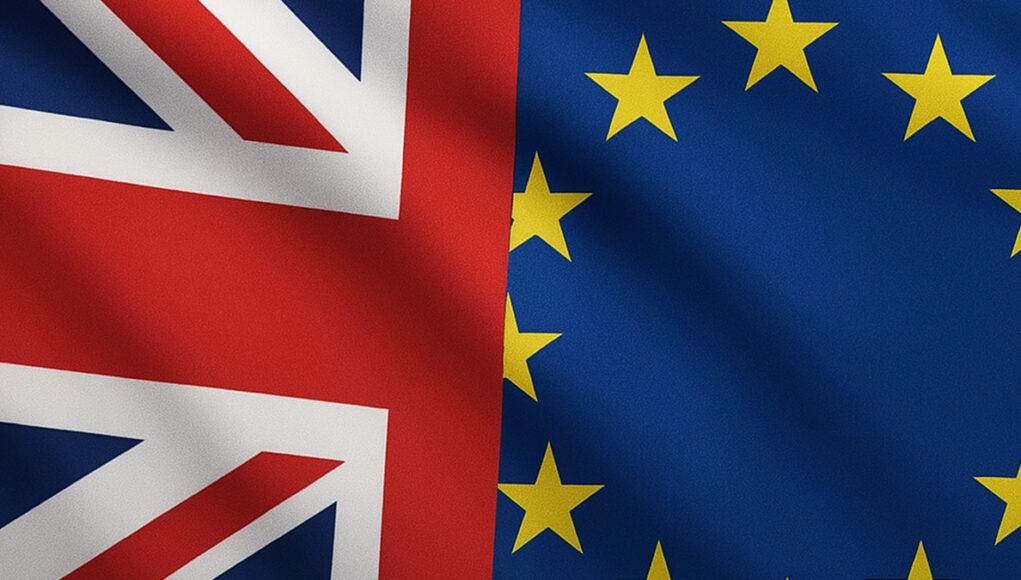



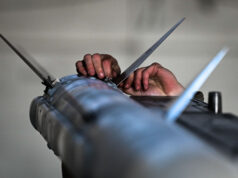

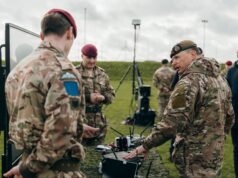
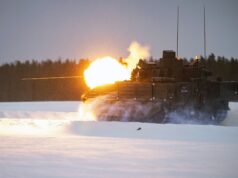
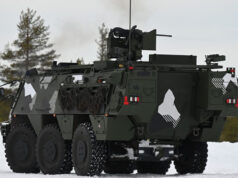

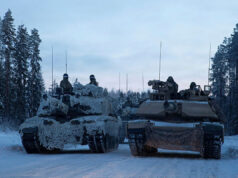

Not a European army please.
Why not? Threats to the UK are the same ones other nations face?
Would it not make sense to create a common defence force to face some in threats?
Emmm….. not really….. would a European Army defend Australia/New Zealand/Singapore/Malaysia/Brunei/Gibraltar/the Falklands and everywhere else the UK has defence treaties/obligations?
I would love the UK could still project power to protect Commonwealth countries- but I feel the threat is much more immediate.
Perhaps the idea of a European Army needs to to widened to include surface and sub-surface cooperation, airlift and air defence.
The UK has always had a relatively small army, but we have the technological know-how to cover other areas in a Pan-European defence policy.
Google pay 92 every hour my last check was 8400 working 10 hours per week on the web. My more youthful sibling companion has been averaging 18k throughout recent months and he works around 24 hours per week. I cannot accept how simple it was once I attempted it out.This is my main thing……….,.,.,.. WORKSTAR1.COM
“Australia/New Zealand/Singapore/Malaysia/Brunei/Gibraltar/the Falklands”
Let’s be honest. The UK realistically could only defend one of those places if anything came to it.
No … the French will want to control.
Craig, we have NATO. Even if the US leaves which I think is unlikely, then NATO could continue as ENATO plus Canada.
We need a European Army.
Would you not need unanimous support from all involved parties to deploy such as force? For example, if the UK wanted to deploy forces to BA bases globally, this could be vetoed by any other member of said EA.
A shared command structure to be employed when necessary would be better, and that’s what NATO provides.
Lee read below for my full take in the short term. The UK is a bit irrelevant because we aren’t in the EU. There is nothing saying that an EU defense organisation would have to be unanimous, it could become a super majority or majority vote thing.
Equally remember that French, Dutch etc overseas territories still are EU territories so if in the longer term the defence burden shifts from member states to the EU, defending eg Reunion still would be defending EU citizens and EU territory.
Also NATO provides a shared command structure by assuming EU forces will bolt onto and around US command structures. The unreliability and hostility of the US means that using NATO as a framework no longer is a good bet, so EU based structures need to be developed instead.
Joint procurement and commonality of platforms and munitions, interoperability and joint exercises, joint headquarters for coalitions of willing nation states, shared force multiplyers (AW&C, tankers etc) will deliver most of the benefits of a single European army and still allow national operations
Again, just scroll down and read maybe? You’d actually see where I stand then.
But a single European Army is the long term goal, and should 100% be pushed towards. It would start with a joint HQ and force multipliers… which would have to be part of a European Military, separate from individual national ones.
Hi Geoffrey.
Once I would have been firmly against, believing in the primacy of NATO.
Now, with Trumps unpredictability, and an seeming attitude of Ameruca only, and with long standing western allies, I’m not so sure.
I am certain Danielle. However, there is huge problem. America exercised total control over N.A.T.O. since it began. Everyone in the organisation including Great Britain toed the line. This control was essential to a coherent strategy. Now that control has gone, who is going to take over? None. Happily, our crazed opponent has demonstrated his own total incompetence and that might rescue the situation before the realisation hits home that a European Army doesn’t appeal to many Europeans unless their country controls it.
Barry, America contributed the most Force Elements to NATO, but that does not mean they totally controlled NATO. How? Please be specific though.
Agree, things have changed much.
I do not think it is practical yet. The EU at the moment is a very loose confederation with aspirations to unite further. No more than that.
For the type of time critical decisions defense requires it is not yet ready. A European Defense Grouping with a command structure is a better idea. Perhaps within NATO but more likely alongside it for situations that the US decides to sit out.
Chris, the EU and its predecessor organisation has carried out scores of military deployments since July 1991:
https://en.wikipedia.org/wiki/List_of_military_and_civilian_missions_of_the_European_Union
I’d prefer a pan-European NATO equivalent alongside a European defence procurement finance system.
Something along the lines of a list of systems (similar to that in a recent Perun vid) that can be bought with zero interest finance. So we get the equipment now and the economy of scale without railroading countries into buying something they don’t want.
Europe needs an Army, it’s Land power with an aggressive neighbour that has a massive border with it.
That doesn’t mean we have to be in a European Army.
If Europe can look after itself on land we can focus on air, space and maritime as well projection of land forces to threaten Russia’s flanks.
I agree with you. The last European Army was a disaster, 10 different countries , 10 different languages, at least 2 Parliaments and one Head of State. On paper it looked formidable, its soldiers and sailors were individually brave enough and reasonably trained and equipped.
Unfortunately most of them resented the biggest one and each other, and most wanted to either be in another Army or separate.
The once mighty Austro Hungarian Army.
On the other hand the EU could form an ENATO and centrally fund Defence via a budget that insists on 3% GDP per member state (no pay = bye bye). The French and U.K design, build, operate a coordinated Nuclear deterrence (10 SSBN, plus Tactical Nucs) but centrally funded. That way we have more money for conventional forces.
I worked it out as 3% being about 70% of the US Defence Budget, so with that and a population of 520 million we should be sitting secure.
there is no european army, since Europe is not a nation and there are no european citizens of said nation.
this does not preclude a european coalition, just like when many countries in Europe fought together to defeat Napoleon.
since US commitment to Article 5 seems questionable, just replace NATO with a pan-european version
That is the most realistic option. Any EU controlled force would be hamstrung by the usual squabbles amongst the nation states and without a directly controlled nuclear deterrent it would be missing the vital ultimate weapon.
A purely defensive European eNATO with the prerequisite Article 5 clause would be good enough to deter an aggressor backed up by the U.K. and French nuclear weapons. On the latter some funds from other European nations would be useful to increase the size of the SSBN force but how that would work in practice is open to question.
I think in the medium term an EU command structure that provides high level formations that individual nations don’t require should be a minimum.
That means 3+ star HQs, corps and army level enablers, artillery brigades, etc that EU member states will provide divisions and brigades too. Ideally also EU procurement and joint training networks that smaller nations, eg Estonia, Denmark, Belgium etc could use to pool resources and minimise duplication should also exist.
The threat to Europe, militarily and for the time being anyway, is Russia. So wouldn’t using the Poles as the base for any combined force be a better idea? Looking at their plans for boosting their military it’s pretty obvious they aren’t planning on expeditionary warfare.
Ryan;
A few things:
1) First of all Poland isn’t an exponentially larger land power than other European nations, so it’s not a centre of gravity. They’re in the same league as many other European Nations in terms of size (Poland has 4 Divisions, Germany 3, France 2+colonial units, Italy 2+ enough brigades to form a third, Spain 2+ unassigned brigades and colonial units). So unlike the US they don’t really represent a framework that other nations can realistically bolt onto.
2) An EU Military needs to be nation agnostic, it can’t be built around this or that countries army preferentially.
3) The base really isn’t the problem as such with an EU military. Between Germany, Poland, France, Italy and Spain you are looking at 13 Active Duty Divisions as a minimum. (For Comparison the US Army has 12 Active Duty Divisions). The issue is the lack of centralised planning, so we’re talking corps, army, and army group level formations, and the enablers to support those large scale units. No European Army is large enough to justify the existence of these formations, at most each individual army can muster a corps, and the assumption is that none of those armies will field their full force at once, and if they put a Division or Two out the door those will fight as part of an American Corps/Army/Army Group. So, for example, nobody has any incentive to invest into a Army level logistics Brigade at the national level, but that sort of investment REALLY makes sense when you’re talking about the European Militaries acting in concert.
4) The most acute and dangerous threat to Europe at the moment is Russia, but that doesn’t mean that it’s the only threat Europe has to deal with. The EU currently has a Cold War and a Frozen Conflict with Turkey, both of which are glossed over, but would very much remain concerns in terms of a European Force and a European Foreign Policy. North Africa is also a huge European security concern, and a European Defence Force and Foreign Policy would very much be concerned with stabilizing North Africa and controlling the Med. Never mind the Colonial Possessions, which by default would become European Security Concerns (this includes colonial commitments like the Italians in Somalia, and actual colonial possessions such as Aruba), or trade security operations (which the EU already has taken command of in the past in the case of the Patrols of Somaliland)
Nobody in Europe or within eu ever mentionned the idea of an european army.
Two points.
Which European countries share Frau von der Leyen’s enthusiasm for a potential confrontation with Putin? I suggest very few. Second, when is the E.U. going to sweep away the series of petty and spiteful legislative measures aimed at harming Great Britain since Brexit?
which “petty and spiteful legislation” are you referring to? can you please be specific.
I think the time has come for a European Military force, especially since the US seems to want to take a step back from Europe. A European Military could then allow each country to ‘contribute’, according to its own financial abilities, as well as their particular ‘skill set’. For example… the UK (and others) could lead the way with it’s maritime capabilities, while Poland for example, could focus on land forces.
Agree, The EU could actually build its own Army independent of member states as a US replacement (300,000 strong) while nation states continue to have their own domestic army’s fully under national control.
Such an EU force could be deployed on the same super majority basis used for budget voting in the EU instead of a unanimous basis like NATO.
The US army worked exactly like this until 1918 which is why Pershing had to be the only 6 star general in history.
More ignorance from the crazed one. Pershing was never a six star general and there never has been any six star generals in the US Army. Pershing was promoted to General of the Armies and wore four stars. By law, the highest ranking General in US history is George Washington.
Also the US Army *never* worked like that. You had regiments that bore the name of the state they where raised in and the personnel came from. But the 20th Maine was not part of a “Maine Army” that was then handed over to US Army Command, any more than the Ox and Bucks light infantry where part of the Oxfordshire Army.
You need to control your meds again, it’s getting to be a habit now.
I think the time has come for a European Military force, especially since the US seems to want to take a step back from Europe. A European Military could then allow each country to ‘contribute’, according to its own financial abilities, as well as their particular ‘skill set’. For example… the UK (and others) could lead the way with it’s maritime capabilities, while Poland for example, could focus on land forces.
However, human ‘frailties’ being what they are, currently, I doubt that so many countries could sit around a table to explore the possibilities, without infighting, etc etc.
The reality is that Britain is a rather small power now, with limited financial and military resources. We can still do limited out-of-area engagements, but not with any great numbers. The idea that we could place a significant force in SE Asia to support our FPDA commitment, or similar commitments elsewhere, is long gone,.
We need to.form a European defence pillar, because the main military/grey zone threat we face is from Russia. It would be militarily prudent to assume that, in any conventional land grab or theatre war, we and Europe would not be facing Russia alone, but Russia with the active backing of China and other autocratic powers. It seems clear that, for now at least, we can no.longer count on US involvement and probably even assistance.
At the moment, three large nations are throwing their weight about, while we in the UK and Europe can do little to prevent or affect the course of events. However Europe, if we include the EU and non-EU NATO nations, is the world’s second larget economy, with the second largest GDP, if fact, a go9d bit bigger than China. The population, of close on 600 million, is nearly double that of the USA and four times that of Russia. What prevents Europe punching its diplomatic and military weight are little national niggles about command positions, fishing rights,, ancient rivalries and so on.
The answer is that we need a European Security Organisation that is either the European pillar of NATO or the eventual replacement for NATO. It would need stricter rules than NATO has, regarding Clause 5 being obligatory, following any 2/3rds vote of the Council, 3% minimum of GDP defence expenditure as a term of membership and a fully-fledged military structure, either the NATO structure in Brussels or a new Euro outfit.
Lots more could be added, but the general leitmotif would be, united we stand, divided we fall.
The fear that someone else, a Frenchman or a German perhaps, would be controlling our forces is not a real issue. Officers from many countries command NATO forces at various levels and that command is rotated between different nations. That has been the case for decades and we haven’t suffered from that.
For instance, the Chiefs of Staff Committee of a European defence organisation would number 6, and there are 6 large nations in Europe, so it would normally have one senior officer from each of Germany, UK, France, Italy, Spain and Turkey, with their departmental staffs consisting of officers from these and other countries, broadly how NATO works at the moment.
Agreed with much of what you’ve said here. I’d add a few things:
I think there needs to be a new European Military Outfit, it would be open to any European Citizen (contrary to what some have said here there are European Citizens, as under EU law any Citizen of a member state is also a EU citizen), and it would provide framework capabilities that would enable maneuver and deployment at higher scales. Effectively the initial EU Military would be things like: High level HQ’s (Commanding officers could be from various constituent member militaries, but the permanent staff would be EU military), high level logistics formations, air to air refueling aircraft, AWACS, Strategic Airlift etc. Stuff that it doesn’t make a lot of sense for individual member states to invest in, but the EU should have as a whole if it weans itself off US dependency.
In the event of war, this centralised structure would allow individual national armies to slot into it, the way they would previously have slotted into the US armed forces without too much drama. It doesn’t solve the issue of duplication and wastage, but it’s a start.
The Second piece of the new EU Military I’d suggest is the option for nations to donate their armed forces to the EU. Obviously not a huge number of nations would go for this, but some smaller nations with limited defence budgets, and security threats would probably see some benefit to essentially paying their defence budget into a centralised pot and maximising the spend, rather than maintaining small national forces of their own (I’m thinking countries like Ireland, Belgium, Czechia, Portugal and potentially Denmark might initially see the benefits of folding one or more of their services into a EU force. This would create a small combat nucleus of the EU military that would still be better than the sum of it’s parts.
Just as a thought Exercise, if Ireland, Belgium, Czechia and Portugal threw their chips into the common pot you’d have a pot of 90,000 troops and a budget of 19 Billion. Which is better than the siloed equivalents:
Ireland: 8,000 troops, 1.5 billion USD
Belgium: 25,000 troops, 7 billion USD
Portugal: 27,000 troops 4 billion USD
Czechia: 30,000 troops 6.5 billion
(As a comparison point the regular Polish Armed Forces (so not counting TDF) is about 180,000 and has a budget of 28billion)
I do think European nations now need a new military alliance outside of NATO.
NATO can still stand as an alliance that provides some high level security across North America, North Atlantic and Europe. But it’s clearly not an alliance that fulfils the needs of European Nations in:
1) guaranteed European security lead by European nations.
2) European power projection into key areas such as the North Atlantic, artic, Middle East, Indian Ocean and Africa.
3) a robust European strategic Nuclear deterrence
So the defence of Europe needs to lead by European nations with European nations providing the structures and armed forces… any U.S. forces should be an adjunct not a core..in the same way as European nations such as the Uk and France would provide an adjunct to the U.S. on the pacific.
As well as European defence, there needs to be an alliance covering power projection to ensure Europe has worldwide influence, that means UK, France and Italy leading on and providing expeditionary forces ( CBGs, Amphibious groups, SSNs etc).
I also don’t think a European Alliance necessarily undermines NATO. That was a US talking point that was more about the EU threatening the US’s “Primer inter Pares” status within the Alliance, reducing reliance on it, and potentially being a rival for export orders. NATO IMO could still function just fine as: The US, Canada, the UK, Norway, Turkey and the EU.
the EU and UK must first admit trump has been right all along, to expect americans to be our final defence is ludicrous, we far outnumber russia and have a much larger economy, our politicians have been asleep at the wheel for the last 30 years, ever since NATO began poking the bear
A key question here is whether NATO can still work in some fashion, given Trump’s ambivalence about US commitment to NATO defence. or needs to be superseded by a European security organisation.
The whole concept of NATO from the outset has been that the USA and Europe would stand together if threatened by hostile powers. The USA has always planned to reinforce Europe if things ever kick off with Russia. It is quite right that they have now pivoted to the Pacific, to meet the economic, political and military threat to US hegemony from China. It inevitably means they would have less to contribute to European defence, with the resulting need for Europe to spend more and build up its forces. However, Trump has taken it much further.
The cornerstone belief that the USA would honour its Clause 5 undertaking is no longer something that can be banked on.. The operating assumption that Europe would be covered by the US nuclear umbrella is now far from certain. The common theme that NATO would stand up to an aggressor and uphold international law, by force if necessary, has gone out of the window under Trump. Basically, the original concept of democratic allies standing together has turned into an isolationist America, driven by short-term economic gain, at the expense of any wider considerations.
We are in a situation where the US insists on retaining command of NATO, despite the limited and perhaps now shrinking number of US troops and assets in Europe and a big question mark over how much reliance can be placed on US support in the future.
One answer.is to look back at how we organised things in WW2. There was a British Chiefs of Staff committee in the UK, which ran the war across all the theatres we were involved in. There was a similar Joint Chiefs of Staff in the USA, which commanded the ear in the Pacific. We had a senior general on their JCS Cttee as our voice in the wider picture. We basically operated as two pillars of the joint war effort. Where there were differences of opinion, they were sorted out by Chirchill and Rooseveldt or on a few occasions, by joint meetings of the two staffs to hammer out an answer. It worked well enough, we jointly won the war.
I wonder if this is the right rout to follow today. A NATO with a US pillar and a European one. The US with its primary focus on the Asia/Pacific theatre, Europe with its focus on Europe and its back yard in Africa and the Midfle East. Of course some in the USA would not like it. The political-military seniors have become very used to the US running everything and telling us all what to do. Their military-industrial complex, as Eisenhower termed it, has become very dependent on selling high-priced military equipment to the Euro colonies and sees the greatest threat to their business as the Europeans jointly developing their own high-spec kit.
But a NATO Europe leg would drive us to stand on our own two feet and start to reduce dependence on US political vagaries, equipment and reinforcements. It would turn Europe into a military power that started to match the USA. It would be a rocky road with the current oval office incumbent but no pain, no gain.
It would of course require the main European players to speak with one voice on the need for a Europen NATO pillar and that would be a big political challenge to be met and overcome.
European Army it’s a NO from me ,isn’t this what NATOs all about 🙄
It was in the past, but things have now changed markedly since the MAGA mob came to power in the USA.
All previous assumptions about the US playing the central role in NATO, providing a nuclear umbrella for Europe, fulfilling its Clause 5 commitment and sending reinforcements to Europe in the event of a conflict now look far most unlikely under Trump. He values and respects the autocrat in the Kremlin and has nothing pleasant to say about his NATO allies. Indeed, he covers allies’ land, with greedy eyes turned to Canada and the ominous assertion that he means to get Greenland from Denmark, “one way or another”, implying the use of force if alĺ else fails. That is completely intolerable and undermines any value from having the US as an ally.
We can’t really.trust the USA to commit to any useful part in the defence of Europe or the UK any more.. It is time to coalesce with our NATO allies in a structured defence and security arrangement that is no longer dependent on the vagaries of a MAGA
administration.
A European army doesn’t necessarily mean an EU army. The UK, Norway, Turkey, Iceland are not in the EU but the first three provide a sizeable commitment to Europe’s defence and Iceland will be a key base in the new theatre of the High North. So a wider European defence and security set-up is needed, either a formal European pillar of NATO.or a new pan-European defence organisation.
Your absolutely right about the USA and having more defence ties with Europe I have no problem with .But let’s keep our Army ,RN, RAF independent .Like you say it doesn’t necessarily mean a EU Army I guess we’ll have to wait and see 👍
Please see the model of the Joint Expeditionary Fprce. This is a multinational molitary force of cointries not run by the EU that works well.